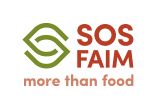
Europol’s #SayNo campaign
The latest Europol’s report addressing online sexual coercion and extortion (oSCEC) as a form of crime affecting children provides a law enforcement perspective of this online threat and recommends actions as a part of their preventive campaign #SayNo on this topic.
What does the report reveal ?
First, it seems important to highlight that there appear to be two major motivations for the online sexual coercion and extortion of children : sexual and financial. Minors are the victims of both, however the sexual gratification of a perpetrator appears to be the primary motivating factor (83%). Financially motivated offences are predominantly carried out by organised offenders based outside of the EU. Coercion and/or extortion, which centres on financial benefit, rather than sexual gratification for the perpetrator, is a comparatively new trend in online child sexual abuse and exploitation.
When sexually explicit content was the apparent objective, offenders commonly escalated their demands, both in the quantity of images/videos and/or in the level of seriousness. In some extreme instances, victims were coerced or extorted to provide videos including other children, such as siblings or peers, in the images/videos.
The report points out that one major limitation of the current ability to assess the true nature of oSCEC and successfully combat it is the lack of a common language. Therefore the report recommends to promote the use of proper terminology that exhaustively reflects the nature of oSCEC. In June 2016 the “Terminology Guidelines for the protection of children from sexual exploitation and sexual abuse” were launched in Geneva by an interagency working group (IWG) coordinated by ECPAT Luxembourg. The results adopt a consistent use of language and terms with the objective to lead to consistent laws and policy responses on the same issue. Words simply matter and on https://www.infogreen.lu/Luxembourg-epicentre-of-global-semantic-harmonisation.html you will find more about the “Luxembourg Guidelines”.
Furthermore the report reveals that in the context of preventive intervention, a lack of awareness programmes explaining characteristics of oSCEC and addressing its key elements has been observed. The recommendation emphasises the deliverance of effective, tailor-made awareness programmes to make children and young people aware of acceptable and unacceptable online communication. ECPAT Luxembourg is active on this level : In 2015, ECPAT Luxembourg started a new project and created a youth group, ECPAT You(th) Together . The NGO recruited young people who are between 15 and 25 years old, who wanted to participate in the project to raise awareness on sexual exploitation of children. After being train as peer-to-peer trainers, the youngsters recently started holding workshops in high schools in Luxembourg. A major accomplishment of the youth group is their “responsible citizen’s pledge”, a document they distribute to gather as many signatures as possible for a better prevention and protection of children and adolescents against sexual exploitation. You will find more information about ECPAT You(th) Together on www.ecpatyouth.lu. Further information about ECPAT Luxembourg’s awareness programme are available on https://www.infogreen.lu/What-do-we-do-in-Luxembourg.html.
It seems that every child can become a victim of the oSCEC phenomena. The two most emphatic risk factors are the lack of knowledge about the dangers of the internet and the lack of parental control along with the victim’s adverse personal situation or psychological state. In any case, it is fundamentally important that victims report their case as soon as possible and that support mechanisms are offered to the victims. The victims shall not be treated as offenders by national legislation. When a child takes a nude photograph and sends it over the internet, it is different to the producing of child sexual abuse material.
Further information about what child sexual exploitation is can be found on https://www.infogreen.lu/But-what-is-child-sexual-exploitation.html
Europol’s #SayNo campaign

Offenders may try and approach you online to get sexual photos or videos of you. They might say nice things to you to gain your trust. They may also lure you into sexualised conversation and performing sexual acts online. Once they get hold of your sexual photos or videos, they may demand you send more, or ask you for money, threatening to post the images on the internet or share them with your friends and family if you don’t do as they say. This person is not someone you should trust. This is an offender and should be prosecuted. Many victims don’t seek help or report it to the police as they are embarrassed about the material the perpetrator has, or because they are unaware that they are victims of crime. The best thing you can do is to go the police and report what has happened.
The technological expansion, which offers new communication channels, growing internet coverage and the widespread availability of mobile devices, deeply impacts social rules and patterns of our societies. According to the report there is no doubt that much has recently changed in the online behaviour. Fact is that there is nothing specific to these platforms that encourages coercive and exploitative behaviour. They are simply platforms used by a high number of young people, which provide a viable opportunity to those who wish to contact them for potential abuse.
Communiqué par ECPAT Luxembourg




















